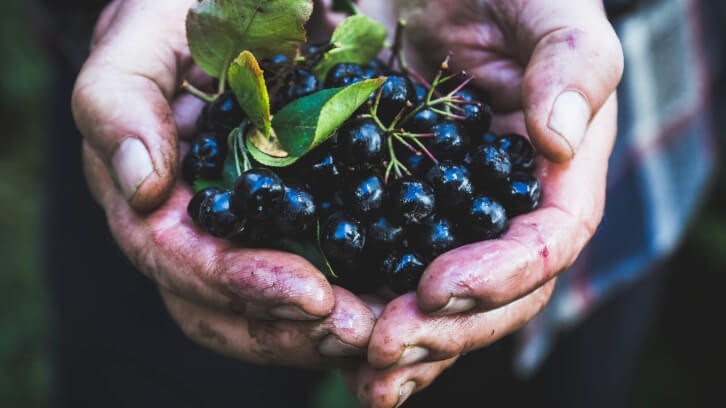Aronia plus bee pollen may provide benefits for athletes

The study, published in Molecules, tested several different ratios of pollen to Aronia, with a 2:1 ratio respectively being the most powerful.
While the above mentioned ratio was the best overall, the authors write that different ratios will work better for certain athletes, depending on the sport and their personal nutritional needs. The different ratios tested were 1:1, 2:1 and 1:2.
“It is generally accepted that the bioavailability of natural supplements is superior to that of the synthetic ones ...” wrote researchers from the University of Oradea in Romania. “The novelty of our study is represented by the unique combination between Aronia melanocarpa and bee pollen, providing elements for a personalized sport diet tailored to a particular individual’s requirements.”
Bee Pollen and Aronia Melanocarpa
Bee pollen, which is a mixture of floral pollen, flower nectar and honeybee salivary gland enzymes, has been a part of the human diet since early history. There are numerous benefits outlined in previous literature including its functionality as an antioxidant, anti-inflammatory, anti-cancer, anti-allergic and anti-microbial.
Aronia melanocarpa is well-known for its phenolic content, along with clinical benefits ranging from antioxidant to anti-inflammatory.
The authors analyzed the bee pollen and Aronia using spectrophotometric methods to determine composition, fatty acid profiles, polyphenols and antioxidant capacity. “The results are in concordance with previously reported ones, confirming the high content of proteins and carbohydrates,” the authors write.
Within the Aronia sample, 13 different phenolic compounds were identified; within the bee pollen, 16 flavonoids and phenolic acids were identified.
Results
The authors categorized which ratio would work best based on protein, carbohydrates, fats and mineral content. For protein, or sports where muscle mass synthesis is essential, it was A1:P2.
When looking solely at carbohydrate needs, A1:P2 was also the preferred option, with the authors recommending suitability for endurance sports. When looking at fat profiles and needs, the authors say any of the three ratios tested work as they all have lower atherogenic values compared to dairy or meat products. For mineral content, the formulations all had good amounts of potassium, calcium and magnesium. Overall, Aronia was a better source of minerals so they recommend the A2:P1 formula for high mineral loss situations, such as intense training.
To measure antioxidant capacity, the authors utilized several different tests including DPPH, TEAC, FRAP and CUPRAC. They found Aronia and bee pollen scored differently across the tests. Bee pollen had better antioxidant capacity in the DPPH and TEAC and Aronia had better antioxidant capacity for the FRAP and CUPRAC assays. “This might be explained by the different antioxidant compounds, with pollen being very rich in polyphenols, while Aronia is rich in anthocyanins,” the authors write.
The next step for this research, they continue, would be in vivo testing to prove the performance of the formulations.
Source: Molecules
2023, 28(19), 6944; doi: 10.3390/molecules28196944
“Designing New Sport Supplements Based on Aronia melanocarpa and Bee Pollen to Enhance Antioxidant Capacity and Nutritional Value”
Authors: A. Tirla, et al.





